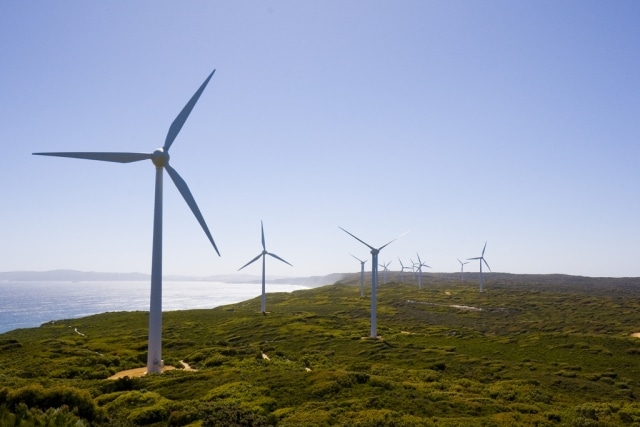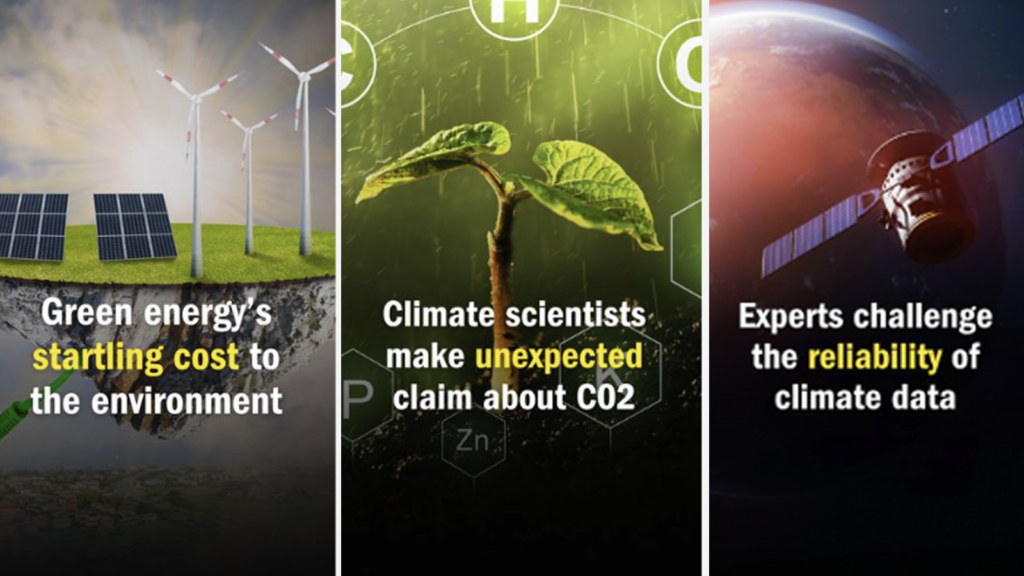Australia’s Prime Minister Tony Abbott isn’t much of a fan of wind power.
In an interview with Alan Jones, the country’s most popular radio shock jock, Abbott said he thought wind farms were “visually awful” and they “make a lot of noise.”
You know, like coal mines?
But the Abbott Government’s opposition to wind farms goes much further than dissing them for their looks.
Abbott’s Treasurer Joe Hockey, who also thinks wind farms are “utterly offensive”, has ordered the government’s key clean energy financing fund to stop investing in wind projects.
The Government has also agreed to create a national “windfarm commissioner” to look into complaints and to also establish a committee to examine claims that wind farm noise is damaging to health (despite repeated studies and reviews showing no link).
In the same interview with Alan Jones, Abbott explained that a recent cut to the country’s renewable energy target negotiated by his ministers was motivated by a desire to reduce “the number of these things (wind turbines)”.
“I would frankly have liked to have reduced the number a lot more, “ Abbott told Jones, who is also no fan of wind power. Jones also thinks climate change science is “witchcraft”.
According to data from Bloomberg New Energy Finance, new investment in wind energy totalled US$99 billion globally in 2014 — an 11 per cent rise on the previous year. This is the size and potential of the industry that Abbott has decided to oppose, apparently on looks alone.
The Abbott Government’s opposition to the booming industry has not gone unnoticed in the Brussels headquarters of the Global Wind Energy Council — a group representing interests across the industry in more than 80 countries.
Shruti Shukla, director of policy and global projects at GWEC, told me the council is well aware of the “significant difficulties that renewables including wind energy currently face in Australia”.
She said: “It’s an odd combination of short-sighted self-interest mixed with a hard-to-fathom underlying ideology. Mr. Abbott’s government is waging a shortsighted war on renewables, and has succeeded in doing some severe damage to the wind industry in Australia.”
Shukla said the “dissonance” between the gains in renewable energy around the world and Australia’s actions against its own domestic industry was “astonishing”.
“The negative political campaign will lead to Australia falling behind by a larger and larger margin,” she said. “For the moment it appears Australia is making every effort to fall off the charts for wind power installations.”
“The real loss is to the Australian people. People and communities will be deprived of the economic and environmental benefits that renewables could bring.”
But how long might Australia’s opposition to wind power last? Shukla thought it would have a lifetime of equal length to the current Abbott Government.
“We expect this myopic political wrangling to be short-lived and linked to the present political environment. Australia cannot afford to be left behind in a global shift to cleaner energy choices.”
Australia is still to announce its medium- and long-term targets to cut greenhouse gas emissions as part of United Nations talks that will culminate in Paris at the end of this year.
While Australia has attempted to claim that it is a “good global citizen” on climate change, Shukla said its opposition to wind energy would further damage its international reputation.
“Australia’s internal political nonsense completely discredits its claims to be a climate champion internationally. The politically motivated campaign to push out renewables will further lower its credibility at the UN Climate Talks in Paris this year.”
Image credit: Albany wind farm in Western Australia. Image credit: Flickr/Lawrence Murray
Subscribe to our newsletter
Stay up to date with DeSmog news and alerts






